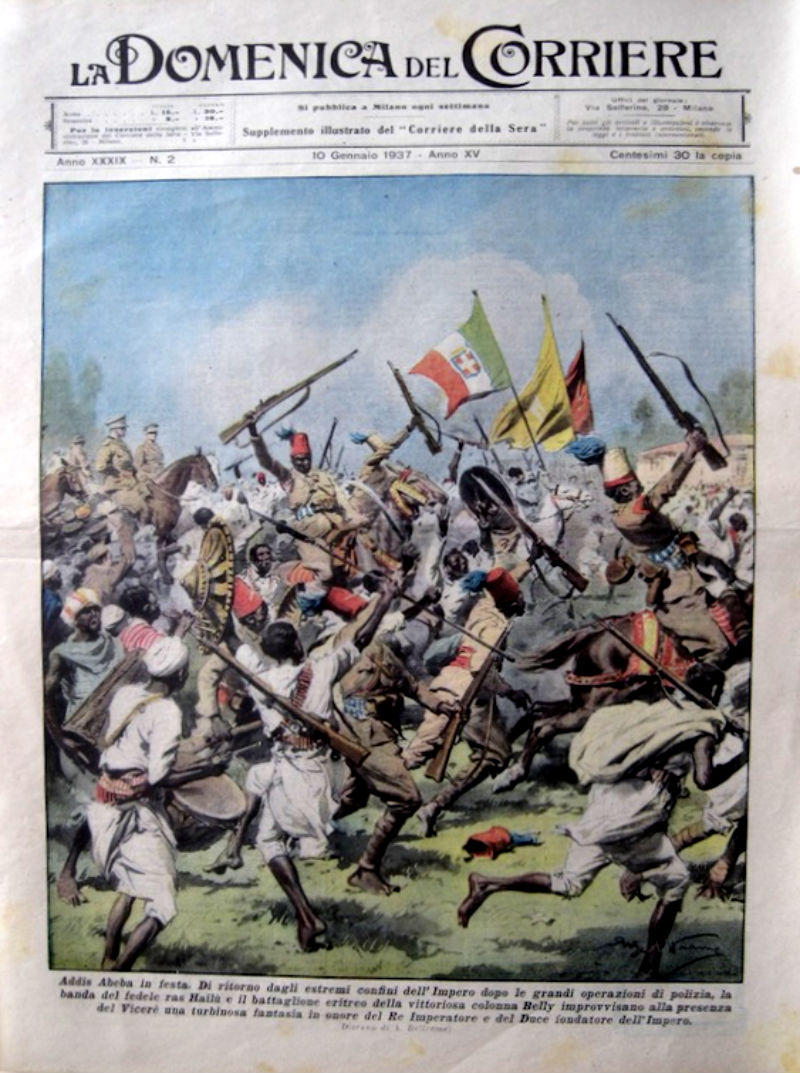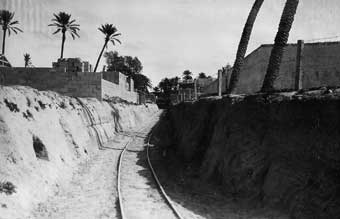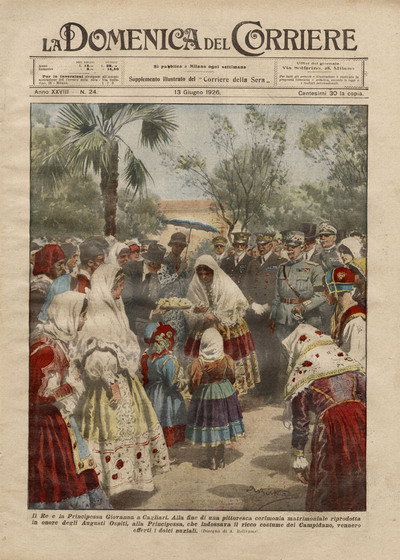 At the beginning of Nov. the Italian Government had considered the possibility of extending the theatre of war, by sea at least, in the hope of inducing
At the beginning of Nov. the Italian Government had considered the possibility of extending the theatre of war, by sea at least, in the hope of inducing  Turkey to give up the struggle. AustriaHungary intervened, backed by Germany, and on receipt of a report of Italian activity off Salonika,
Turkey to give up the struggle. AustriaHungary intervened, backed by Germany, and on receipt of a report of Italian activity off Salonika, Count Aehrenthal told the Italian ambassador in Vienna that Italian action" on the Ottoman coasts of European Turkey or in the Aegean Islands
Count Aehrenthal told the Italian ambassador in Vienna that Italian action" on the Ottoman coasts of European Turkey or in the Aegean Islands  could not be allowed either by Austria or by Germany, as it would be contrary to the Treaty of Alliance."
could not be allowed either by Austria or by Germany, as it would be contrary to the Treaty of Alliance."
He said further that he considered" the bombardment of ports in European Turkey such as Salonika, Kavalla, etc., as contrary to Article VII."(of the Alliance). Italy's action being limited in this way, it was necessary to solve the
 Tripoli problem directly, but the task was more difficult than it need have been owing to other limitations
Tripoli problem directly, but the task was more difficult than it need have been owing to other limitations laid upon the military authorities by the Italian Government. Gen. Caneva's orders appear to have been that he must not risk (carabinieri the most useless police in Europe, these are military police who unlike the UK act as civvy police)reverses or suffer heavy loss.
laid upon the military authorities by the Italian Government. Gen. Caneva's orders appear to have been that he must not risk (carabinieri the most useless police in Europe, these are military police who unlike the UK act as civvy police)reverses or suffer heavy loss. 
In the circumstances a desert expedition in pursuit of the Turks and their mobile auxiliaries seemed hardly practical. In any event, the four months following the battle of 'Ain Zara
 passed without any action of importance in Tripolitana. A flying column sent southwards from 'Ain Zara on Dec. 1919 had a stiff fight near Bir Tubras.
passed without any action of importance in Tripolitana. A flying column sent southwards from 'Ain Zara on Dec. 1919 had a stiff fight near Bir Tubras.  The oasis of Gargaresh, 2 m. west of Tripoli, was occupied on Jan. 20, after a skirmish with a body of Arabs who came up from the south when the Italians advanced into the open. Five weeks later the situation at Horns
The oasis of Gargaresh, 2 m. west of Tripoli, was occupied on Jan. 20, after a skirmish with a body of Arabs who came up from the south when the Italians advanced into the open. Five weeks later the situation at Horns  was improved by the capture and retention against counterattack of the Mergheb, a hill which dominates the little town.
was improved by the capture and retention against counterattack of the Mergheb, a hill which dominates the little town. No other fighting took place in the western province until the spring was nearly over, though
No other fighting took place in the western province until the spring was nearly over, though in Feb. the arrival of camels, motor lorries and Eritrean askaris
in Feb. the arrival of camels, motor lorries and Eritrean askaris  seemed to point to an early advance.
seemed to point to an early advance.During the period of inaction the relations between Italy and France came under a cloud.  On Jan. 15 and 18, respectively, the French mail steamers" Carthage "and" Manouba,"en
On Jan. 15 and 18, respectively, the French mail steamers" Carthage "and" Manouba,"en  route from Marseilles to Tunis, were stopped and brought into Cagliari by Italian cruisers.
route from Marseilles to Tunis, were stopped and brought into Cagliari by Italian cruisers. The grounds given were that the" Carthage "was carrying an aeroplane destined for the Turks,
The grounds given were that the" Carthage "was carrying an aeroplane destined for the Turks, and that a Red Crescent Mission which was on board the" Manouba "included several Turkish officers.
and that a Red Crescent Mission which was on board the" Manouba "included several Turkish officers.  The French Prime Minister, M. Poincare, made a speech that was exceedingly sharp in tone, and the
The French Prime Minister, M. Poincare, made a speech that was exceedingly sharp in tone, and the  press of both countries heaped fuel on the flames kindled by the incident.
press of both countries heaped fuel on the flames kindled by the incident. The matter was referred to The Hague, where the verdict was given in favour of Italy,
The matter was referred to The Hague, where the verdict was given in favour of Italy,  but M. Poincare's speech
but M. Poincare's speech  and the threats of the French press were not forgotten by Italian public opinion.
and the threats of the French press were not forgotten by Italian public opinion.
 On Jan. 15 and 18, respectively, the French mail steamers" Carthage "and" Manouba,"en
On Jan. 15 and 18, respectively, the French mail steamers" Carthage "and" Manouba,"en  route from Marseilles to Tunis, were stopped and brought into Cagliari by Italian cruisers.
route from Marseilles to Tunis, were stopped and brought into Cagliari by Italian cruisers. The grounds given were that the" Carthage "was carrying an aeroplane destined for the Turks,
The grounds given were that the" Carthage "was carrying an aeroplane destined for the Turks, and that a Red Crescent Mission which was on board the" Manouba "included several Turkish officers.
and that a Red Crescent Mission which was on board the" Manouba "included several Turkish officers.  The French Prime Minister, M. Poincare, made a speech that was exceedingly sharp in tone, and the
The French Prime Minister, M. Poincare, made a speech that was exceedingly sharp in tone, and the  press of both countries heaped fuel on the flames kindled by the incident.
press of both countries heaped fuel on the flames kindled by the incident. The matter was referred to The Hague, where the verdict was given in favour of Italy,
The matter was referred to The Hague, where the verdict was given in favour of Italy,  but M. Poincare's speech
but M. Poincare's speech  and the threats of the French press were not forgotten by Italian public opinion.
and the threats of the French press were not forgotten by Italian public opinion.In Cyrenaica progress had been no more speedy than in the region of Tripoli. No effort, in  fact, had been made to advance towards the interior, or even to extend the area of occupation round Bengazi, Derna and Tobruk.
fact, had been made to advance towards the interior, or even to extend the area of occupation round Bengazi, Derna and Tobruk. Nothing, certainly, was to be gained by an advance into the blank desert behind Tobruk, and it was decided to make no move from Bengazi and Derna. Enver Bey succeeded in reaching Cyrenaica early in the winter, and by his energy and personality he succeeded in organizing a formidable resistance, securing a unity among the tribesmen, and a willingness to cooperate with the Turks, which had never before existed.
Nothing, certainly, was to be gained by an advance into the blank desert behind Tobruk, and it was decided to make no move from Bengazi and Derna. Enver Bey succeeded in reaching Cyrenaica early in the winter, and by his energy and personality he succeeded in organizing a formidable resistance, securing a unity among the tribesmen, and a willingness to cooperate with the Turks, which had never before existed.  Under Enver's direction both Bengazi and Derna, but especially the latter, were closely beset throughout the winter. The Derna lines, which were dominated from the hilly ground
Under Enver's direction both Bengazi and Derna, but especially the latter, were closely beset throughout the winter. The Derna lines, which were dominated from the hilly ground  immediately behind the town, were harassed frequently, and between the end of Dec. and the first week in March four important attacks were delivered at intervals of about three weeks. All these attacks were repulsed after hard fighting, and the result of the engagement of March 3, in which the attack was directed by Enver Bey in person,
immediately behind the town, were harassed frequently, and between the end of Dec. and the first week in March four important attacks were delivered at intervals of about three weeks. All these attacks were repulsed after hard fighting, and the result of the engagement of March 3, in which the attack was directed by Enver Bey in person, seemed to convince the Turks and Arabs that their attempts were useless. The neighbourhood of Derna remained quiet for nearly five months.
seemed to convince the Turks and Arabs that their attempts were useless. The neighbourhood of Derna remained quiet for nearly five months. At Bengazi, except for one reconnaissance in force at the end of Nov. when an Italian column went out some 6 m. from the town and returned after a sharp fight, there was no action of any importance till March. Blockhouses were built to secure the Italian lines, and these were occasionally attacked
At Bengazi, except for one reconnaissance in force at the end of Nov. when an Italian column went out some 6 m. from the town and returned after a sharp fight, there was no action of any importance till March. Blockhouses were built to secure the Italian lines, and these were occasionally attacked , but the Italians made no movement until March 12, when Gen. Briccola, who commanded the garrison, sent out a column to attack a large body of Arabs who had occupied an oasis, or rather a collection of gardens, known as the Two Palms, less than half-a-mile from one of the Italian redoubts.
, but the Italians made no movement until March 12, when Gen. Briccola, who commanded the garrison, sent out a column to attack a large body of Arabs who had occupied an oasis, or rather a collection of gardens, known as the Two Palms, less than half-a-mile from one of the Italian redoubts.
 fact, had been made to advance towards the interior, or even to extend the area of occupation round Bengazi, Derna and Tobruk.
fact, had been made to advance towards the interior, or even to extend the area of occupation round Bengazi, Derna and Tobruk. Nothing, certainly, was to be gained by an advance into the blank desert behind Tobruk, and it was decided to make no move from Bengazi and Derna. Enver Bey succeeded in reaching Cyrenaica early in the winter, and by his energy and personality he succeeded in organizing a formidable resistance, securing a unity among the tribesmen, and a willingness to cooperate with the Turks, which had never before existed.
Nothing, certainly, was to be gained by an advance into the blank desert behind Tobruk, and it was decided to make no move from Bengazi and Derna. Enver Bey succeeded in reaching Cyrenaica early in the winter, and by his energy and personality he succeeded in organizing a formidable resistance, securing a unity among the tribesmen, and a willingness to cooperate with the Turks, which had never before existed.  Under Enver's direction both Bengazi and Derna, but especially the latter, were closely beset throughout the winter. The Derna lines, which were dominated from the hilly ground
Under Enver's direction both Bengazi and Derna, but especially the latter, were closely beset throughout the winter. The Derna lines, which were dominated from the hilly ground  immediately behind the town, were harassed frequently, and between the end of Dec. and the first week in March four important attacks were delivered at intervals of about three weeks. All these attacks were repulsed after hard fighting, and the result of the engagement of March 3, in which the attack was directed by Enver Bey in person,
immediately behind the town, were harassed frequently, and between the end of Dec. and the first week in March four important attacks were delivered at intervals of about three weeks. All these attacks were repulsed after hard fighting, and the result of the engagement of March 3, in which the attack was directed by Enver Bey in person, At Bengazi, except for one reconnaissance in force at the end of Nov. when an Italian column went out some 6 m. from the town and returned after a sharp fight, there was no action of any importance till March. Blockhouses were built to secure the Italian lines, and these were occasionally attacked
At Bengazi, except for one reconnaissance in force at the end of Nov. when an Italian column went out some 6 m. from the town and returned after a sharp fight, there was no action of any importance till March. Blockhouses were built to secure the Italian lines, and these were occasionally attacked , but the Italians made no movement until March 12, when Gen. Briccola, who commanded the garrison, sent out a column to attack a large body of Arabs who had occupied an oasis, or rather a collection of gardens, known as the Two Palms, less than half-a-mile from one of the Italian redoubts.
, but the Italians made no movement until March 12, when Gen. Briccola, who commanded the garrison, sent out a column to attack a large body of Arabs who had occupied an oasis, or rather a collection of gardens, known as the Two Palms, less than half-a-mile from one of the Italian redoubts.
A mixed force of Turks and Arabs also approached the town from the south-east, but did not press home their attack.  The Arabs in the oasis stood firm, but they were overwhelmed by the Italian attack and suffered very heavily.
The Arabs in the oasis stood firm, but they were overwhelmed by the Italian attack and suffered very heavily.
 The Arabs in the oasis stood firm, but they were overwhelmed by the Italian attack and suffered very heavily.
The Arabs in the oasis stood firm, but they were overwhelmed by the Italian attack and suffered very heavily.
After the battle of the Two Palms there was practically no fighting in the Bengazi district, but in April the long spell of inaction in the western province came to an end, and from that time onward the resistance of the Turks and Arabs was gradually broken by a series of operations at various points.
 to make italian colonial troops use marx american troops or french in puttees and substtitute with aip heads
to make italian colonial troops use marx american troops or french in puttees and substtitute with aip heads

 to make italian colonial troops use marx american troops or french in puttees and substtitute with aip heads
to make italian colonial troops use marx american troops or french in puttees and substtitute with aip heads
No comments:
Post a Comment